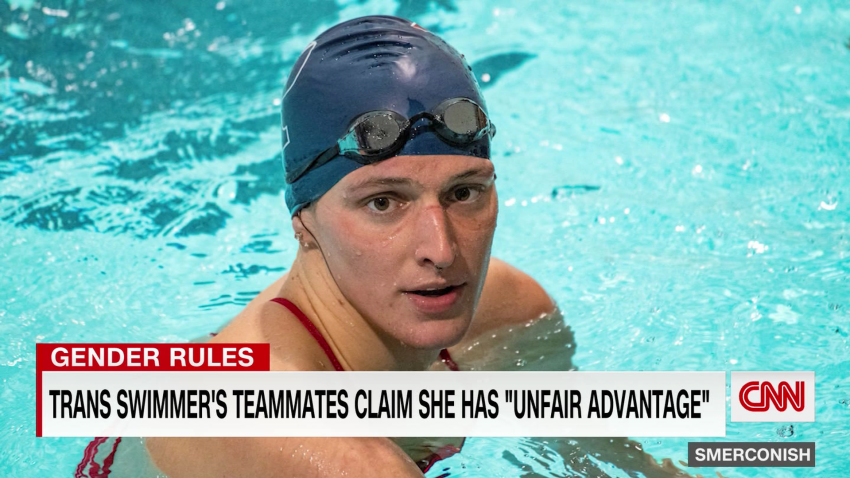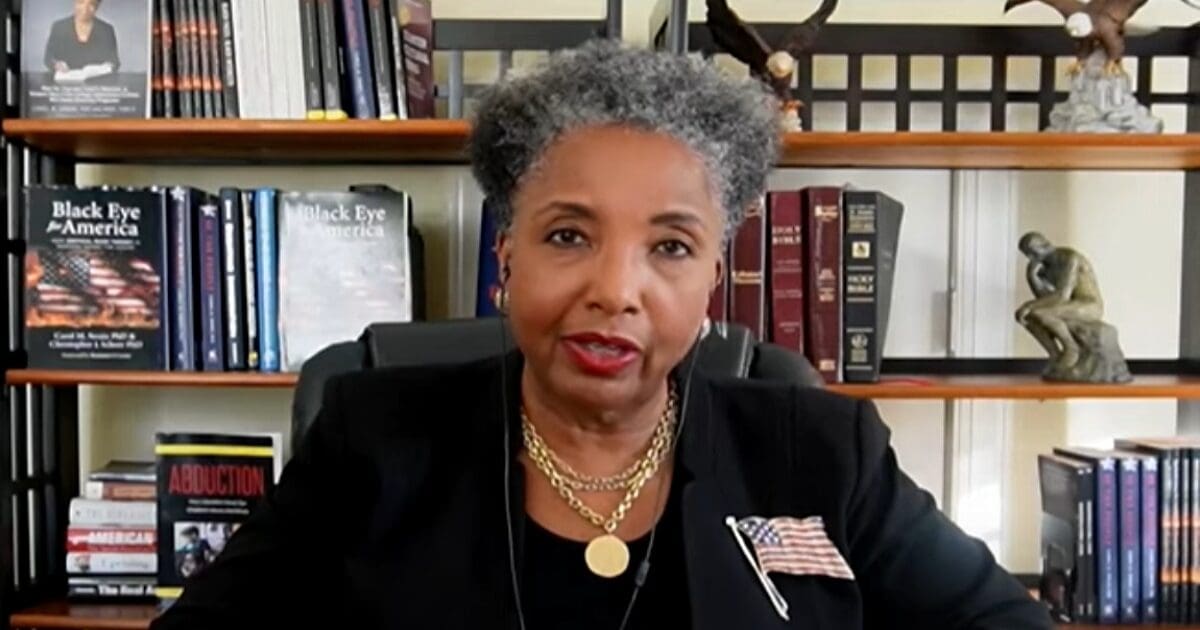The Unfairness Debate: Analyzing Gavin Newsom's Position On Transgender Athletes In Sports

Table of Contents
Newsom's Stance on Transgender Athletes in California
Governor Newsom has generally expressed support for the inclusion of transgender athletes in sports, aligning himself with policies promoting LGBTQ+ rights. While he hasn't issued sweeping statements on every specific policy, his administration has generally acted in a way that reflects support for transgender athletes' participation. This includes supporting legislation aimed at protecting the rights of transgender individuals, though the specifics of these policies regarding sports participation often remain nuanced.
Arguments Supporting Newsom's Position
Arguments supporting Newsom's stance often center on the principles of inclusivity and non-discrimination. Supporters argue that:
- Promoting Inclusion and Equality: Excluding transgender athletes sends a message of exclusion and reinforces harmful stereotypes. Participation in sports offers significant social and psychological benefits, and denying these benefits to transgender individuals is discriminatory.
- Protecting Human Rights: The right to participate in sports is considered by many to be a fundamental human right, and excluding transgender athletes violates these rights. This aligns with broader human rights frameworks and legal precedents.
- Focus on Participation, Not Just Competition: The emphasis should be on providing opportunities for participation and enjoyment of sports, rather than solely focusing on elite competition. Many transgender athletes participate at recreational levels, not aiming for professional sports.
Legal arguments supporting Newsom's stance often hinge on interpretations of Title IX and other anti-discrimination laws, which prohibit discrimination based on sex. However, the exact application of these laws in the context of transgender athletes remains a subject of ongoing legal debate.
Criticisms of Newsom's Position
Criticisms of Newsom's position frequently cite concerns about fair competition and the preservation of women's sports. Critics argue that:
- Biological Differences: Significant biological differences between males and females, particularly in terms of muscle mass, bone density, and hormonal profiles, can create an inherent advantage for transgender women in female sports. This perceived advantage could lead to unfair competition and potentially discourage female participation.
- Loss of Opportunities for Cisgender Women: Critics argue that the inclusion of transgender women in female sports could reduce opportunities for cisgender women, particularly at the elite levels of competition. This raises concerns about fairness and equal opportunities for all female athletes.
- Lack of Clear Guidelines: The lack of universally accepted guidelines and regulations for transgender athletes’ participation creates confusion and inconsistency across different sports organizations and leagues, highlighting the need for clear and consistent policies.
These policies can also negatively impact the mental and emotional well-being of transgender athletes who experience exclusion and discrimination. The resulting stress and anxiety can affect athletic performance and overall mental health.
The Broader Context of the Transgender Athlete Debate
The debate surrounding transgender athletes is not confined to California; it's a national and international phenomenon. Many states and countries are grappling with similar policy challenges, resulting in a patchwork of regulations and guidelines. For example, some states have banned transgender women from participating in women's sports, while others have adopted more inclusive policies. This lack of consistency reflects the complexity of the issue and the difficulty in balancing competing interests.
Scientific Considerations
Scientific research on the impact of hormone therapy and other factors on athletic performance in transgender women is ongoing and yields mixed results. Studies have shown varying levels of performance differences between transgender women and cisgender women, with some suggesting significant advantages, while others highlight substantial variability. The complexity of the issue and the limitations of current research emphasize the need for continued scientific inquiry and the importance of avoiding oversimplified conclusions.
Legal and Ethical Implications
Title IX, the landmark legislation prohibiting sex-based discrimination in education programs, is at the heart of much of the legal debate. Interpretations of Title IX's application to transgender athletes vary, leading to ongoing litigation and policy uncertainty. Ethical considerations include balancing the principles of inclusion and fairness, recognizing the rights of all athletes while upholding the integrity of competitive sports.
Potential Solutions and Future Directions
Navigating this complex issue requires a multifaceted approach, exploring alternative solutions that address both inclusivity and fair competition. Potential solutions include:
- Separate Categories: Creating separate categories for transgender athletes could offer a compromise, allowing for transgender participation while maintaining the integrity of women's sports.
- Hormone Level Regulations: Establishing clear and evidence-based hormone level regulations could help mitigate the perceived competitive advantage associated with transgender women. These regulations would need to be carefully designed and reviewed regularly.
- Individualized Assessments: Implementing individualized assessments that consider factors beyond simple hormone levels could offer a more nuanced approach to eligibility, taking into account individual characteristics and athletic capabilities.
The Role of Policymakers
Policymakers have a crucial role to play in developing evidence-based policies that address the needs of all athletes. This requires careful consideration of scientific evidence, legal precedents, ethical implications, and the diverse perspectives of stakeholders, including athletes, coaches, and administrators.
The Importance of Dialogue and Education
Open dialogue and public education are essential for fostering a more informed and compassionate understanding of the issues surrounding transgender athletes. Addressing misconceptions and stereotypes requires a commitment to education and mutual understanding.
Conclusion
Governor Newsom's position on transgender athletes reflects a complex debate with deeply held beliefs on both sides. The arguments for and against his position highlight the inherent tension between inclusivity and fair competition. While concerns about preserving women’s sports are valid, excluding transgender athletes has significant ethical and legal implications. Finding a solution that balances both is crucial. The path forward requires continued dialogue, a commitment to evidence-based policymaking, and a focus on creating an environment where all athletes feel safe, respected, and valued. To learn more about this crucial issue, and further engage with the topic of Gavin Newsom transgender athletes, we encourage you to research different perspectives from organizations like the ACLU and NCAA, and participate in informed discussions on this evolving area of law and policy.

Featured Posts
-
 Family Fun In The North East This Easter
Apr 26, 2025
Family Fun In The North East This Easter
Apr 26, 2025 -
 Golds Record Rally Understanding Its Role In Times Of Trade Uncertainty
Apr 26, 2025
Golds Record Rally Understanding Its Role In Times Of Trade Uncertainty
Apr 26, 2025 -
 A Conservative Harvard Professors Prescription For Harvards Future
Apr 26, 2025
A Conservative Harvard Professors Prescription For Harvards Future
Apr 26, 2025 -
 Tom Cruise In Mission Impossible Dead Reckoning Teaser Breakdown
Apr 26, 2025
Tom Cruise In Mission Impossible Dead Reckoning Teaser Breakdown
Apr 26, 2025 -
 Climate Change And The African Workforce Adapting To A Green Future
Apr 26, 2025
Climate Change And The African Workforce Adapting To A Green Future
Apr 26, 2025
